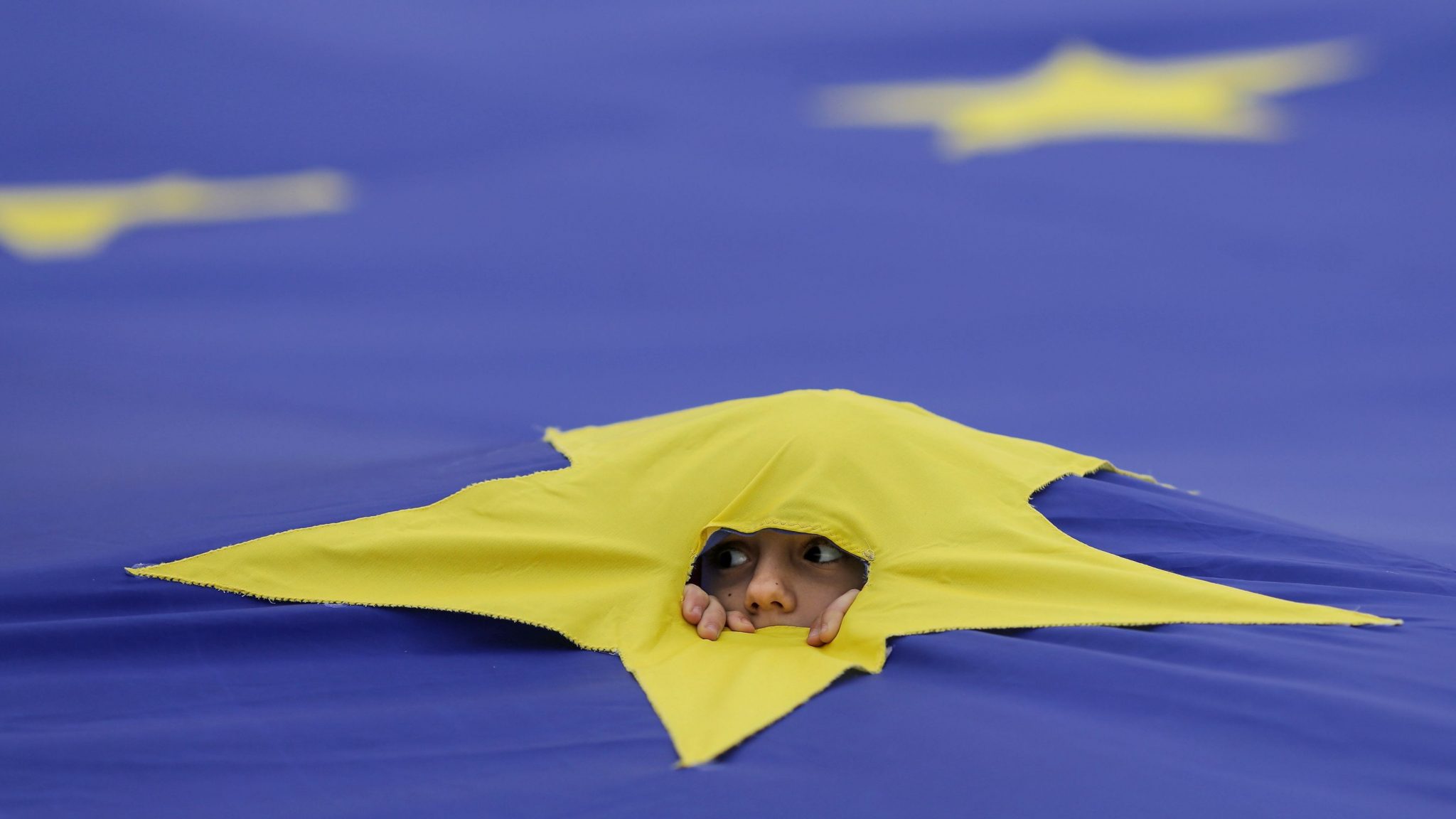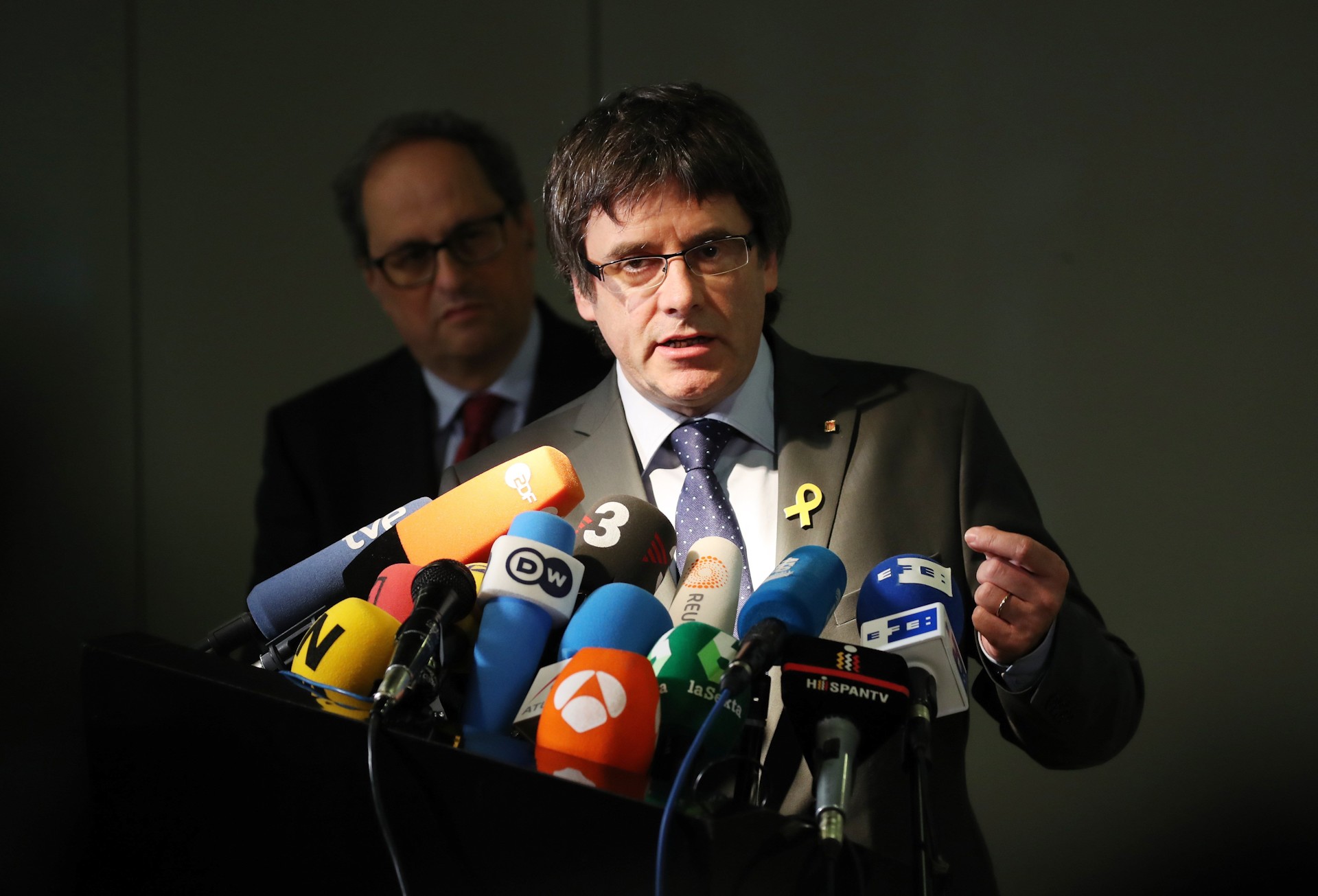
[authorbox authorid=”59″ title=”The Author”]
[toggler title=”DISCLAIMER” ]All opinions in this column reflect view of the autor(s), not of Vocal Europe.[/toggler]
On the 22nd of March, the Alliance of Conservatives and Reformists in Europe (ACRE) hosted its 2018 Brussels summit under the banner ‘A Future for Europe’. The summit served as a platform to discuss the future direction of the European institutions.
ACRE’s recipe consists of less Union, a harder stance on immigration and a multicurrency Union. As we all know, the next elections for the European Parliament are scheduled to take place in 2019. Interesting to see if ACRE will have the opportunity to make good on their promises.
Let’s start with some contextualization. The Alliance of Conservatives and Reformists in Europe (ACRE) consists of 36 conservative parties from Europe and across the globe, among them the leading governing parties in both Poland and the UK. Currently, ACRE forms the third largest faction in the European Parliament, with 71 representatives. A distant third, since the Group of the Progressive Alliance of Socialists and Democrats (S&D) and the Group of the European People’s Party (EPP) together make up a majority of the MEPs.
Still, these results date back to the most recent elections in 2014. And, as we all know, a lot has changed since then: we have witnessed the Brexit, Donald Trump’s elevation to power and the gradual disappearance of so-called mainstream parties in countries such as France and Italy. So hard to tell what we could expect for the upcoming European elections. One thing is certain, the window for a new paradigm shift definitively exists.
For ACRE, the focus should lay on three key issues: the size and scope of the European institutions, common defence and security policy, and the European economy.
Baseline 1: No to more Union
Underlying all of ACRE’s ideas and proposals is a vital opposition to a more federal Union, as proposed by French President Macron and German Chancellor Merkel. The Alliance does not strive to completely end the European cooperation, but they argue for a multi-tiered approach, which would enable the different member states to opt in on certain issues while opting out on several other. As the Co-Chairman of the European Conservatives and Reformists Group, Syed Kamall, puts it: “The EU looks much too often like the sandwich bar of the EU Parliament at 3 pm: a discouraging lack of choice.”
Underlying this stance is ACRE’s conviction about a fundamental disconnect between the West and the East and between the political elite and the electorate. As the European Union is Western-European by design, the Eastern European countries that joined the Union later on, largely feel ignored in their struggle to conform to these imposed Western values.
Moreover, a lot of people feel out of touch with the European Union as it stands today. Polish Prime Minister Mateusz Morawiecki compared part of the European Union with the so-called ‘flyover country’ in the United States, a large share of the country that is largely ignored by the governmental elites. For him, the EU could not tolerate a European version of these ignored masses. Therefore, instead of a top-down EU, ACRE argues for a bottom-up version, otherwise the European project will fail.
Baseline 2: Enhanced security, less immigration
According to ACRE, the EU has largely failed to tackle the refugee crisis from 2015 onwards. Valeri Simeonov, the Deputy Prime Minister of Bulgaria, proudly declared that his country has the lowest migrant force in Europe as they have constructed a fence to keep immigrants out. This rhetoric could not differ more with Merkel’s ‘Wir schaffen das’-policy.
Former Canadian Minister of State and current Shadow Minister of Immigration, Michelle Rempel, even went one step further by arguing for a fundamental re-evaluation of what it constitutes to be a refugee and/or an economic migrant. She vehemently criticized the global institutions, such as the UN, which continually fail to tackle the subject head-on. According to her, we are stuck in a conversation where you are either a racist or a champion of immigration, resulting in the impossibility of a serious debate.
A second theme related to the common security is ACRE’s insistence on NATO as the harbinger of the European security. No need for a separate European defence force, but a call for more European cooperation, for which PESCO or the Permanent Structured Cooperation could be of use (click for more information). Not surprisingly, Russia’s increasingly belligerent stance is identified as the main threat, alongside the chaos and disruption in the Middle East and the Northern parts of Africa.
Lastly, there is the problem of fake news or more properly termed ‘information pollution’ or just plain disinformation. In the current social media society, where news has to be quick, easily-digestible and entertaining, the media face a myriad challenges. According to the panel, the solution lies in increasing the media literacy of the common people. In this way, everyone would be able to discern facts from comments and different truths from blatant lies.
Baseline 3: What to do with the economy?
Last but not least, there is the problem of the European economy. Taking recent events into consideration, such as the Brexit and Donald Trump’s election, the world seems poised towards a new era of tariffs and protectionism. However, this would only result in an economic downturn for each and every one, as trade wars benefit no one. Therefore, the European Union should step in as the harbinger of free trade, since as the saying goes: “When goods and people cross borders, armies don’t.”
The Euro is seen by many ACRE members as a disaster. As a consequence of the financial crisis in 2008, the European Central Bank (ECB) has now become the largest creditor of all European countries, artificially printing new money in order to keep governments afloat. As such, it violates the initial premises of the monetary union, which allowed no government bailouts. What’s more, all of this new money will eventually result in inflation, possibly propelling a new crisis. As an alternative, some ACRE members vouch for a multicurrency Union or a flexible Euro.
Solution: EU as a checklist
The ACRE solution thus sounds a lot like ‘cherry-picking’, as each country would be able to opt in on the things from which it benefits, while opting out on other matters. As such, the Alliance offers a different future than the one envisioned by Macron and Merkel. Interesting to see, which platform eventually will be victorious.




